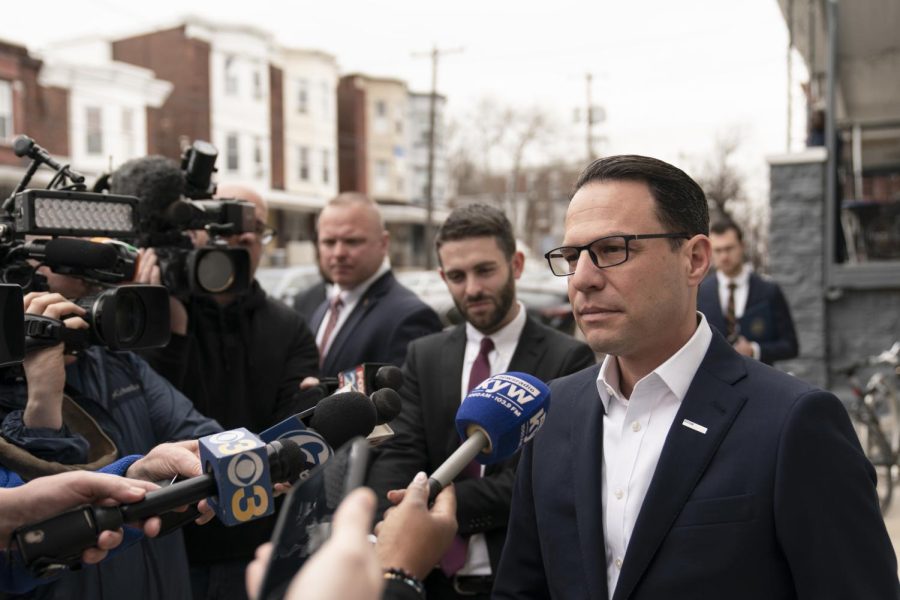Editorial | Pennsylvania governor made the right decision to oppose death penalty
Pennsylvania Democratic Gov. Josh Shapiro arrives for a news conference in Philadelphia, Thursday, Feb. 16, 2023. Shapiro says he won’t allow Pennsylvania to execute any inmates while he is in office and calls for the state’s lawmakers to repeal the death penalty.
February 20, 2023
The death penalty is legal in 24 states while three states, including Pennsylvania, have a moratorium in place. While the state’s relationship with capital punishment is evolving, Pennsylvania has a long history with sentencing people to death.
Pennsylvania began publicly executing people in the early 1600s, but by 1834, it became the first state in the U.S. to outlaw public executions and move gallows to prisons. While seemingly a progressive move, states such as Michigan, Maine and Wisconsin abolished the death penalty in the mid to late 1800s. Before Pennsylvania reinstated the death penalty in 1976, the state executed 1,040 people — the third most of any state.
But after hundreds of years and more than a thousand people killed, Pennsylvania’s governor is paving the way to change history.
Gov. Josh Shapiro shifted his stance on the death penalty since leaving his previous position as the state attorney general, and publicly announced that he would not issue any execution warrant during his term, saying “the system is fallible, and the outcome is irreversible.”
Shapiro is right about the system being fallible. A landmark 1987 Supreme Court decision ruled that — even though statistics show that someone’s race impacts their likelihood of receiving a death penalty — these disparities are “an inevitable part of our criminal justice system.”
The Harvard Civil Rights-Civil Liberties Law Review also found in a 2020 study that defendants convicted of killing white victims were executed at a rate 17 times greater than those convicted of killing Black victims. This disparity demonstrates that even though a clear problem was identified, dramatic measures have not been made to remedy the situation.
Shapiro said “The Commonwealth shouldn’t be in the business of putting people to death. Period. I believe that in my heart. This is a fundamental statement of morality. Of what’s right and wrong.” Shapiro’s reaction comes after the first execution warrant of his governorship crossed his desk earlier this month, and he said he would sign a reprieve for this execution and all others moving forward.
Pennsylvania has 101 inmates on death row, but hasn’t executed someone in 24 years, and Shapiro has made it clear that streak will continue under his leadership.
The United States may have voted no on the United Nations General Assembly resolution calling for a global moratorium for the death penalty — placing it in the company of Iran, Iraq, Saudi Arabia, China, North Korea and Vietnam — but Pennsylvania is on its way to creating a more just society.



